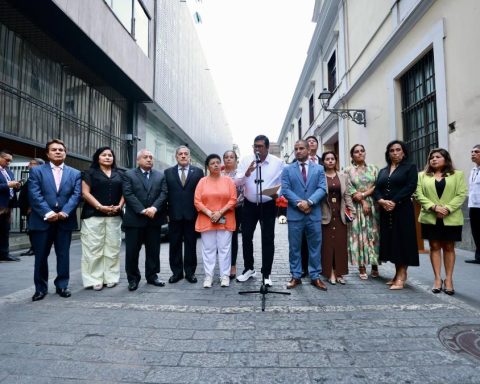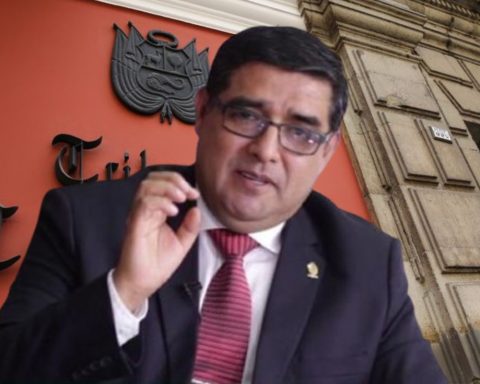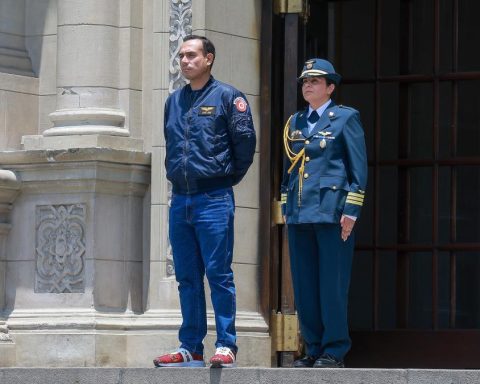On April 10, the Plenary of Congress authorized its then president, Alejandro Soto, to file a jurisdictional claim before the Constitutional Court (TC) against the Judiciary in the case of the magistrates of the National Justice Board (JNJ), Inés Tello and Aldo Vásquez. This was admitted for processing on April 25. The hearing of the case (i.e., the oral report of the parties) was on July 10, in ArequipaMore than two months later, there is still no verdict.
But what there is is a ruling approved by the Constitutional Commission, chaired by Fernando Rospigliosi (Fuerza Popular), which aims to reduce the votes needed in the TC to declare a jurisdictional claim founded from five to four.
Both events – the inexplicable delay of the Constitutional Court in issuing a ruling on such a relevant case and the ruling promoted by Fujimorism and its satellites – do not seem to be isolated. Especially if one considers that the deadlines for the highest constitutional interpreter to announce his decision have already expired.
Indeed, the Constitutional Procedural Code states in its article 111 that a jurisdictional claim is regulated according to the procedures of the unconstitutionality process, which grants thirty days for the issuance of a judgment after the hearing of the case. This expired in August.
Sources with knowledge of the matter warned that the five votes that would support the legislature in its claims do not exist. There would be only four. The Constitutional ruling would help overcome this obstacle.
“Congress is changing the rules of a process before the TC in which Congress itself is a party and in which the deadline to sentence with the rules has already expired,” explained the constitutional lawyer, Omar Cairo. He and his colleague, César Azabache, warned that this manipulation – which consists of lowering the threshold of votes when there are not enough votes required by the current law – It is reminiscent of what the Fujimori Parliament did in the nineties, when it was debating whether the La Cantuta case should be seen in civil or military courts.
Specifically, the Association of Judges for Justice and Democracy (JUSDEM) issued a statement in which it affirms that the Constitutional opinion is given “in circumstances in which the issuance of the sentence in the jurisdictional process initiated by Congress against the Judiciary regarding the disqualification of two members of the National Board of Justice has been pending for months.” It adds that “it is completely reprehensible and serious that Congress violates the procedure pre-established by law by changing the voting rules to favor itself with respect to a case pending a vote, thus forcing the meaning of a ruling. It is up to the Constitutional Court to vote on a case with expired deadlines and not lend itself to legal modification.”
















